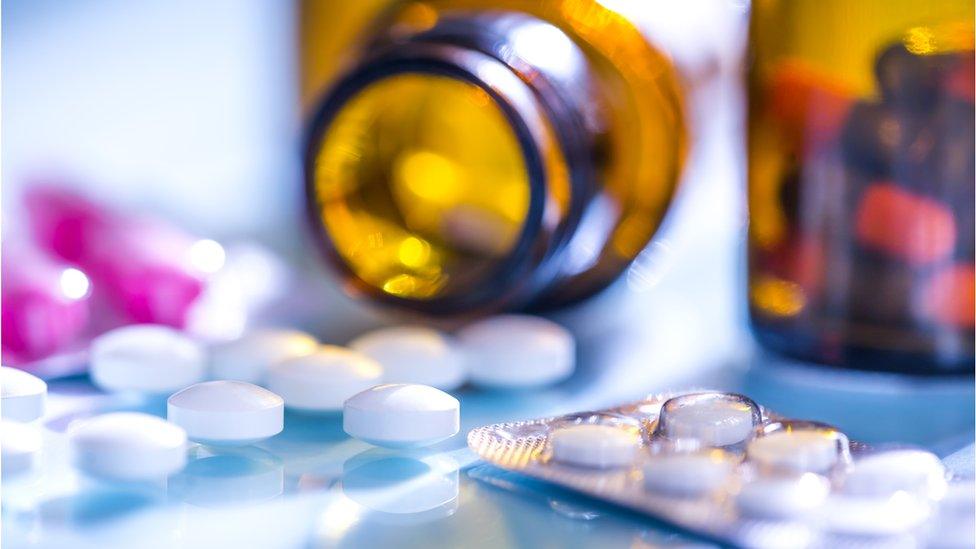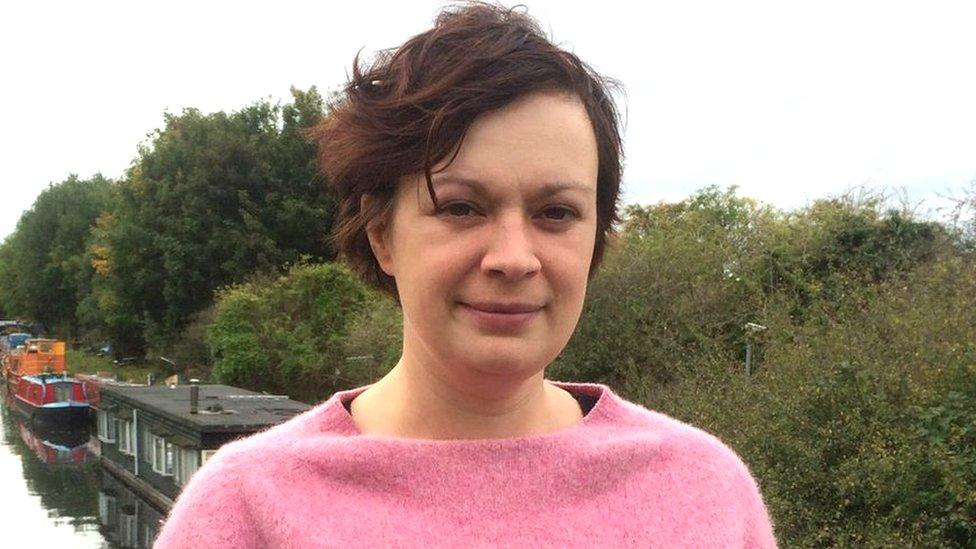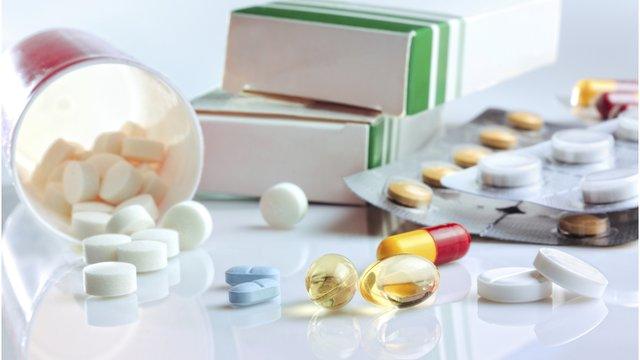Taxpayer-funded drugs 'too expensive for patients’
- Published

Taxpayer-funded medical research is producing medicines which are increasingly unaffordable for patients who need them, says a new report.
Campaigners claim that the NHS spent more than £1bn on drugs developed from publically funded research in 2016.
A government spokesperson said it wanted the UK to be a global leader in research and development".
But NHS England said it was concerned about price "anomalies", and questioned whether regulatory action was needed.
It said that was essential that drug companies price their products responsibly.
It added: "Although the responsibility for the how prices are set for medicines lies with the Department of Health, and in general the system delivers value for money for patients, we are concerned about pricing anomalies at a time when the NHS needs to make significant savings which suggests further regulatory action may be needed."
The government said that it was committed to ensuring patients could access the effective medicines they needed, at a price that represented value for the NHS and for taxpayers.
A new report, external, seen by 5 live Investigates, claims that UK taxpayers and patients worldwide are being denied the medicines they need, despite the public sector playing a pivotal role in the discovery of new medicines.
'Unsustainable' high prices
The report, published by campaign groups Global Justice Now, external and Stop Aids, external, says that even when the government has part-funded the research and development, there is no guarantee that patients will be able to access the medicines at an affordable price.
It says: "In many cases, the UK taxpayer effectively pays twice for medicines: first through investing in R&D, and then by paying high prices for the resulting medicine once ownership has been transferred to a private company."
It claims the high prices of new medicines are "unsustainable for an already underfunded NHS".
Industry representatives counter that the situation is not that straightforward.
They say that turning scientific discoveries into medicines takes years of scientific trials and costs billions of pounds, and the process is risky, so not every drug they test will make it to market.
However, campaigners say drug companies are generating huge private profits from public funds.

Emma believes drug companies should reduce the price of cancer drugs
Emma Robertson, 35, has incurable breast cancer and is taking the drug, palbociclib.
This drug was originally developed using work carried out by publicly funded Cancer Research UK scientists in the 1980s, for which they won the 2001 Nobel Prize.
In February, the National Institute of Health and Care Excellence (Nice) made a provisional decision not to recommend the drug because the cost was too high in relation to its potential benefits.
However Ms Robertson is receiving the drug through a free trial provided by the drug company Pfizer.
A full course of treatment with palbociclib costs £79,650, which campaigners say means the manufacturer is vastly overpricing the drug.
They claim it could be made and sold for a profit for £1 per pill, but say in fact it is currently sold for 140 times more.
"Pfizer needs to dramatically reduce the price that it wants to charge for this drug," Ms Robertson says.
"We need to be asking some really serious questions about how drugs are researched and developed," she adds.
Pfizer denied the drug costs £1 per pill.
It told the BBC that it took more than 20 years to build on the work of the Cancer Research UK scientists.
Turning scientific discoveries into medicines takes "billions of pounds of investment, millions of hours of science and thousands of clinical trials," the firm explained.
There are around 45,000 new diagnoses of breast cancer each year in England.
Meanwhile, health bosses estimate that around 5,500 people in England would be eligible for treatment with palbociclib.
'Complete myth'
Richard Sullivan, professor of cancer and global health at Kings College London, said that while some drug companies price their drugs correctly, others "vastly overprice" their drugs.
"Many of these drugs are extremely profitable", he said, "but there is absolutely no link between the price set and with the returns on the research - it's a complete myth."
"When a drug is refused by Nice there's only one reason it's refused - the company has knowingly overpriced the drug."
Professor Sullivan told the BBC that the public sector had contributed anywhere between "30% and up to 90% of the overall research intellectual input" in the development of drugs.
"The public sector is essential for developing new medicines for cancer patients," he added.
The Association of British Pharmaceutical Industry responded by saying that the suggestion that companies intentionally overpriced drugs "doesn't make sense" because their overall objective is to ensure that the drugs are approved by Nice and then used by patients.
Controversy
In 2015, the UK government spent £2.3bn on health research and development and the relationship been public funding and profits is complex.
Campaigners say more needs to be done to reform the system and that research and development should not be linked to sales revenue.
Instead, campaigners argue, companies should be rewarded for their research in exchange for limiting the price of drugs.
However the pharmaceutical industry says it provides thousands of jobs and the current system is crucial to encouraging drug development.

5 live Investigates is broadcast on Sunday 22nd October 2017 at 11am BST. If you've missed it you can catch up on the iPlayer.
Have you got something you want investigating? We want to hear from you. Email us., external
- Published10 July 2017
